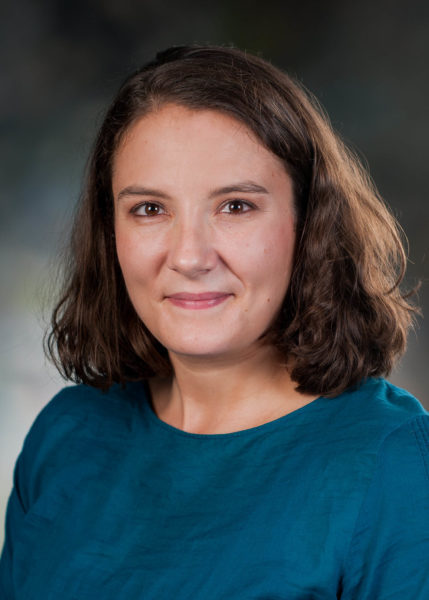
Department
NeurosurgeryNaomi Sayre, PhD
Assistant Professor of Neurosurgery and Biochemistry
Personal Statement:
Dr. Naomi L. Sayre is an assistant professor of research for the UT Heath San Antonio Department of Neurosurgery. She is primarily interested in investigating how cholesterol homeostasis affects the brain’s ability to recover after stroke or traumatic injury and how aging affects the long term outcome. Dr. Sayre became interested in biomedical research while attending the University of Rochester in New York. After she graduated with her undergraduate degree in biology, she went on to earn her Ph.D. from Tufts Sackler School of Graduate Biomedical Sciences in Boston, Massachusetts. She received extensive laboratory training from Dr. Laura Liscum over several sophisticated techniques necessary to the study of lipids. Her dissertation focused on Niemann–Pick Type C, a neurodegenerative disease caused by the lysosomal storage of cholesterol. After developing an interest in the role that lipids play in the pathology of the nervous system, Dr. Sayre initiated her post-doctoral studies in Dr. James Lechleiter’s laboratory at the UT Health Science Center at San Antonio. Her American Heart Association-funded postdoctoral fellowship trained Dr. Sayre in the fields of brain metabolism, stroke models, traumatic brain injury models, and in vivooptical brain imaging. She is currently testing for Apolipoprotein E and low-density lipoprotein receptor related protein 1 (LRP1) in order to determine the role they play in recovery after brain damage. Dr. Sayre is cross-appointed to the Department of Cellular and Structural Biology.
Education
Dr. Sayre became interested in biomedical research while attending the University of Rochester in New York. After she graduated with her undergraduate degree in biology, she went on to earn her Ph.D. from Tufts Sackler School of Graduate Biomedical Sciences in Boston, Massachusetts. She received extensive laboratory training from Dr. Laura Liscum over several sophisticated techniques necessary to the study of lipids. Her dissertation focused on Niemann–Pick Type C, a neurodegenerative disease caused by the lysosomal storage of cholesterol.
